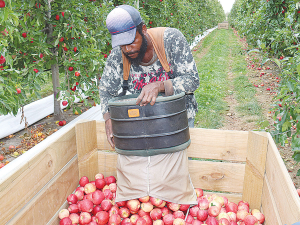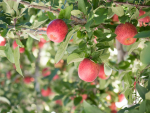The 2021/22 apple season is being described as probably the most disrupted season since WWII.
Apples and Pears NZ chief executive Terry Meikle says this is the opinion of a long-time apple grower and historian of the sector. Meikle says the problem faced by the industry in the past year are very significant and it's not one single issue, but a layering of problems that has created the crisis.
"Obviously, labour shortage is front and centre of the impact in terms of getting RSE workers," he told Hort News.
"There is Covid and then the problems of freight and logistics and these are all sort of layering on top of each other. The only silver lining is that we seem to be getting some relatively positive signals out of the Asian market in terms of pricing. However, in Europe the opposite is true. Overall, when that is patched together, you haven't got a very positive story to tell."
Meikle says the latest estimates suggest that the apple crop this season will be roughly the same as 2021. This was also down on previous seasons because of a hailstorm which hit the Nelson region in December 2020 and damaged a large chunk of the apple crop that season.
He says this season's crop is down on early estimates, but the final figures won't be known until the full extent of impact of freight and logistics are revealed later in the year.
"The numbers will vary from different regions and this will depend on how the crop was picked in different orchards," Meikle explains.
"Normally, apples trees will be picked three of four times in a season. But because of labour and weather issues, some orchardists have only been able to pick their fruit just once or - at the most - twice, which obviously isn't ideal," he adds. "That is hard for Joe Bloggs and government to understand the impact this could have and it won't be known until the fruit go through the packhouse."
In terms of logistics, Meikle says there is some sense of a return to normality but costs are still going through the roof. He says the issue was discussed at a recent seminar attended by freight forwarders, supply chain operators and shipping line executives.
There was a discussion on shipping and some of the delays. Meikle says the worst case scenario was 42 days, but adds it was currently averaging between 18 and 30 days.
"Nelson was the region hardest hit by the shipping restrictions, but Hawke's Bay is also affected."
Meikle says with what's going on in China with port closures due to Covid, and it is unclear what might happen.
"We are told this may take 18 to 24 months. But we were hearing that 18 months ago."


















